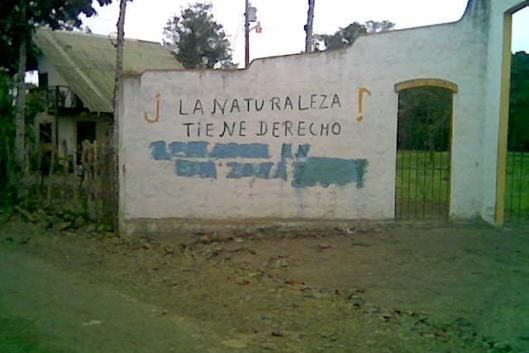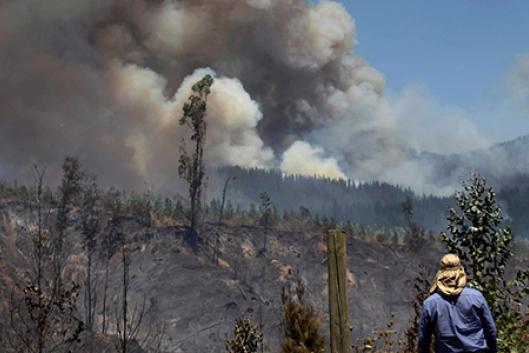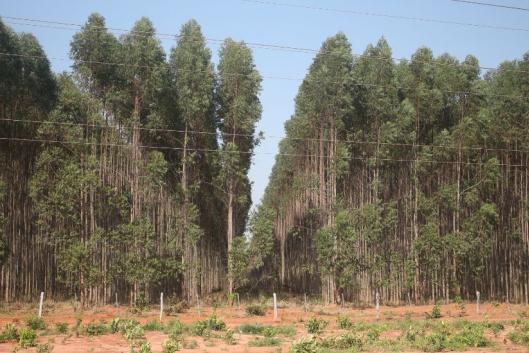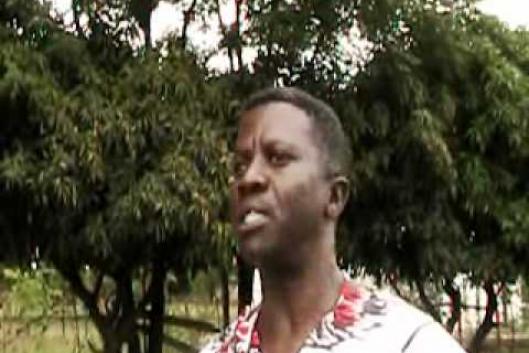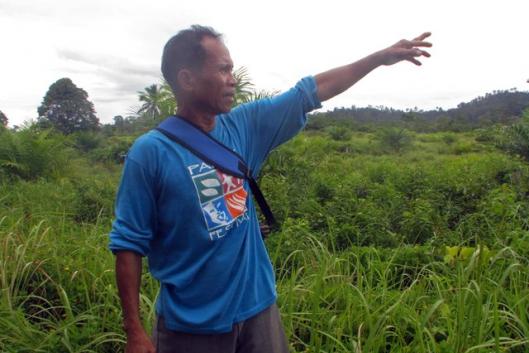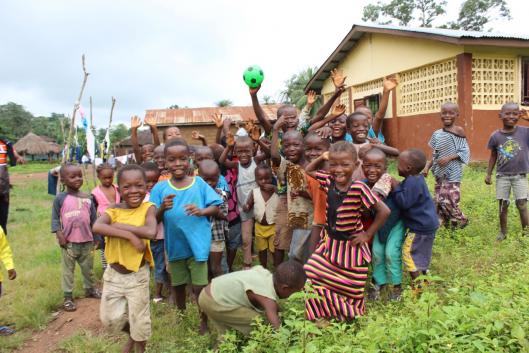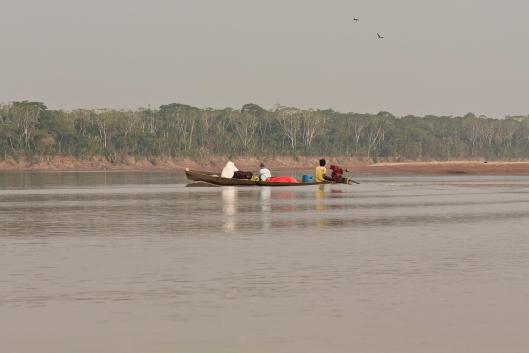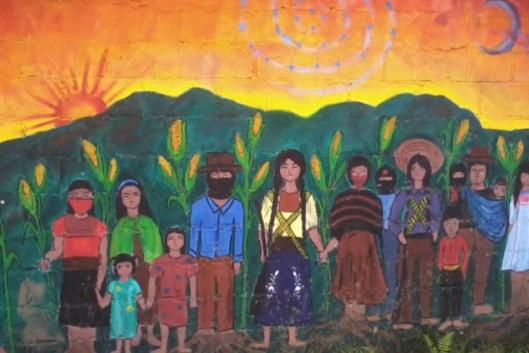As expected, the climate conference in Durban has not taken any significant decision in terms of combating the climate crisis. Maybe in 2020 a new binding agreement will be signed. 2020? According to the network of organizations and movements called Climate Justice Now, this constitutes a “crime against humanity”. It seems as if those governments who are the most responsible for the climate crisis have given up any consideration for the people who have become victims of the crisis, those who are affected or seriously threatened by climate change, especially poor women.
Issue 174 – January 2012
OUR VIEWPOINT
COMMUNITIES, FORESTS AND PLANTATIONS
-
30 January 2012The new year got off to a fiery start in Chile, as seen in the national and international news reports of the devastating forest fires raging across various regions of the country. These include the regions of Araucanía and Bío Bío, in central-southern Chile, where there are more than three million hectares of industrial plantations of exotic tree species. Over two million hectares of these plantations – primarily made up of pine and eucalyptus trees – are owned by the companies Arauco and Mininco, and have also been hit by the wildfires.
-
29 January 2012The year 2011 was declared the International Year of Forests by the United Nations. Major international events such as the climate conference in South Africa and the upcoming Rio+20 summit in Brazil and biodiversity conference in India have also contributed to making forests a key issue on the global agenda, as well as the subject of high-profile public relations campaigns.
-
29 January 2012In the reports about the effects of industrial tree plantations of eucalyptus, pine or oil palm on peoples' lives, negative impacts such as conflicts over land tenure, depletion of water resources, lack of work opportunities and destruction of local economies are most frequently mentioned. Specific impacts on fundamental aspects of people's culture are usually mentioned less or not at all, although the consequences can be tremendous when the culture of a people is strongly linked to their identity, self-esteem, well-being and ultimately to their survival.
-
29 January 2012Palawan, located between the Sulu and South China seas, is one of the most beautiful islands of the Philippine archipelago. The island is 450 kilometers long and 40 kilometers at its widest portion. Along its gorgeous beaches - framed by mangroves and by the last remaining lowland evergreen forest - coral reefs are home to unique marine biodiversity. Of the approximately 900,000 inhabitants of Palawan, around 20 percent are indigenous peoples who belong to three main ethnic groups - Tagbanua, Palawan and Batak - whose main livelihood is upland agriculture (rice, cassava, colocasia, corn, banana, coconut, etc.), hunting and gathering, and commercial collection of, non-timber forest products (see Bulletin Nº 165).
-
29 January 2012During 11 years - from 1991 to 2002 - a harsh civil war fueled by the inequitable distribution of power and resources decimated the population of Sierra Leone. The country now faces a state of food insecurity and has become a net food importer attributed not only to the war but also to World Bank and IMF recipes. With the aim of fostering a market-based economy, those institutions imposed policies that curtailed state agricultural programs and investments in agriculture.
-
29 January 2012On December 7 and 8, 2011, a meeting was held in the Amazonian city of Cobija, Bolivia, to assess the status of the rights of indigenous peoples living in isolation or in situations of extreme vulnerability in the Amazon and Gran Chaco regions, and to establish an action plan for the defence of their rights. What follows is a summary of a report and reflections on the meeting written by Pablo Cingolani (the full text is available in Spanish athttp://www.ecoportal.net/Temas_Especiales/ Pueblos_Indigenas/Un_camino_hacia_la_proteccion_de_lo s_pueblos_indigenas_en_aislamiento_de_Bolivia).
-
29 January 2012To commemorate the 15th anniversary of the Instituto de Estudios Ecologistas del Tercer Mundo (Third World Institute for Ecological Studies) and to pay tribute to Ricardo Carrere (who was the WRM coordinator up until December 2010), the Ricardo Carrere Conference on Ecological Thinking was held in Quito, Ecuador. (*).
PEOPLE IN ACTION
-
30 January 2012On January 21, during International Green Week in Berlin, the environmental organization Rainforest Rescue presented the director-general of the United Nations Food and Agriculture Organization (FAO) with more than 27,000 signatures in support of an initiative headed up by 613 scientists and professionals in various fields related to the study of nature around the world, calling on FAO to amend its definition of “forest” (see http://wrm.org.uy/forests/letter_to_the_FAO.html).
-
30 January 2012This March 6 to 9 the Convention on Biological Diversity and the governments of Ecuador, India, Japan, Norway and Sweden will host a “Global Dialogue Seminar on Scaling Up Finance for Biodiversity” in the city of Quito, Ecuador. The purpose of the seminar is to explore “financial mechanisms and resources” for biodiversity. The Ecuadorian environmental organization Acción Ecológica has launched a call to collect signatures for an open letter that will be presented to the participants in the seminar, in which it denounces the intent to convert biodiversity into a key part of the so-called “green economy” that is meant to be consolidated through the agreements reached at the upcoming Río+20 summit.
-
30 January 2012In the southern Indian state of Tamil Nadu, the French Michelin company is planning to build a huge tire plant that would impact on the community forest, rice fields and lakes of the Dalit people (the so-called "untouchables"). Some 1500 families depend on the forest, especially during the dry season. Other 13 neighboring communities also depend on the forest and the water. Repression and even imprisonment since February 2011 have been the response to hunger strikes and demonstrations against the construction of the plant.
-
29 January 2012The Indonesian police attacked a peaceful demonstration in SAPE Harbor on December 24, 2011, killing three persons and injuring at least twenty-nine others. The protestors were members of Anti-Mining People's Front (FRAT) and were demanding against the Bima Gold Mine Project, owned by Australian PT. Arc Exploration Ltd.. The undertaking will dismantle the agricultural lands and disrupt water resources with very harmful consequences on the environment and the lives of local people who are mainly fisherpersons and farmers.
